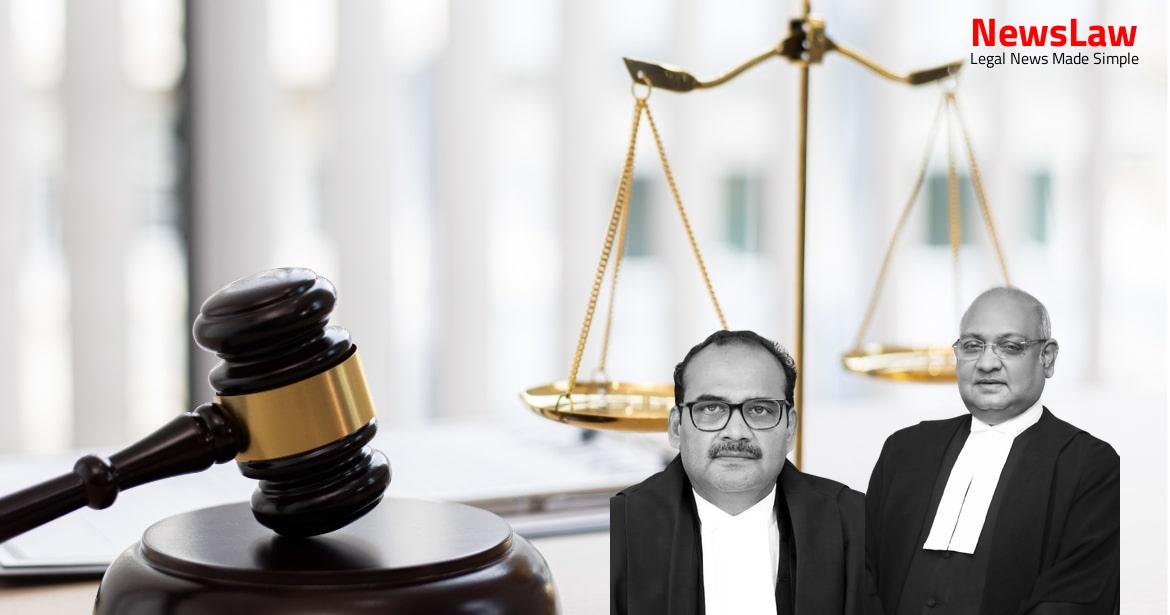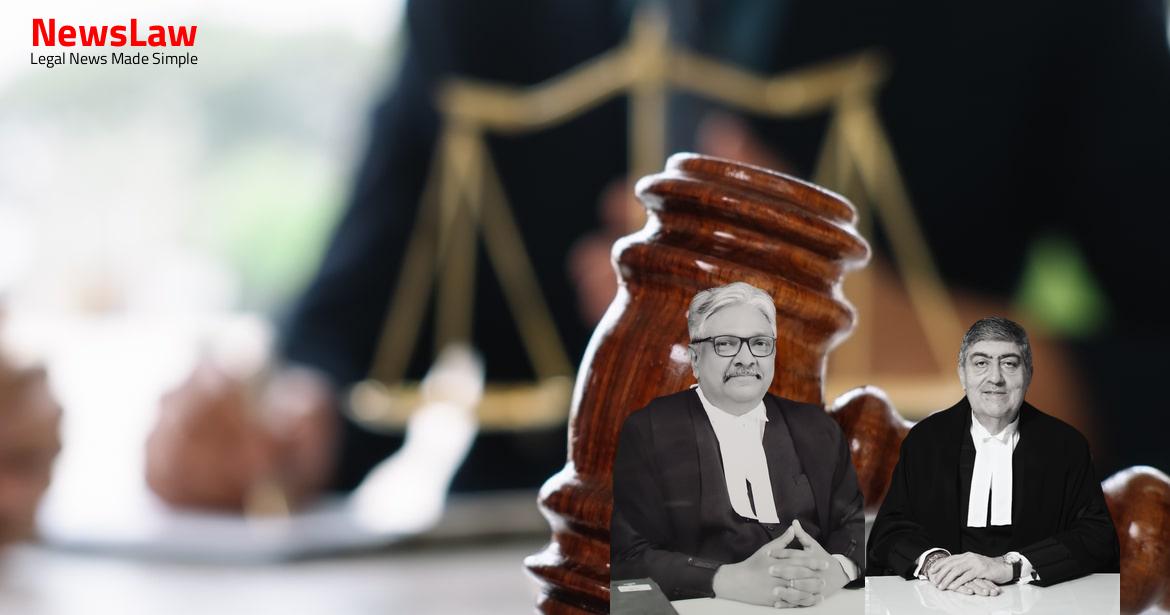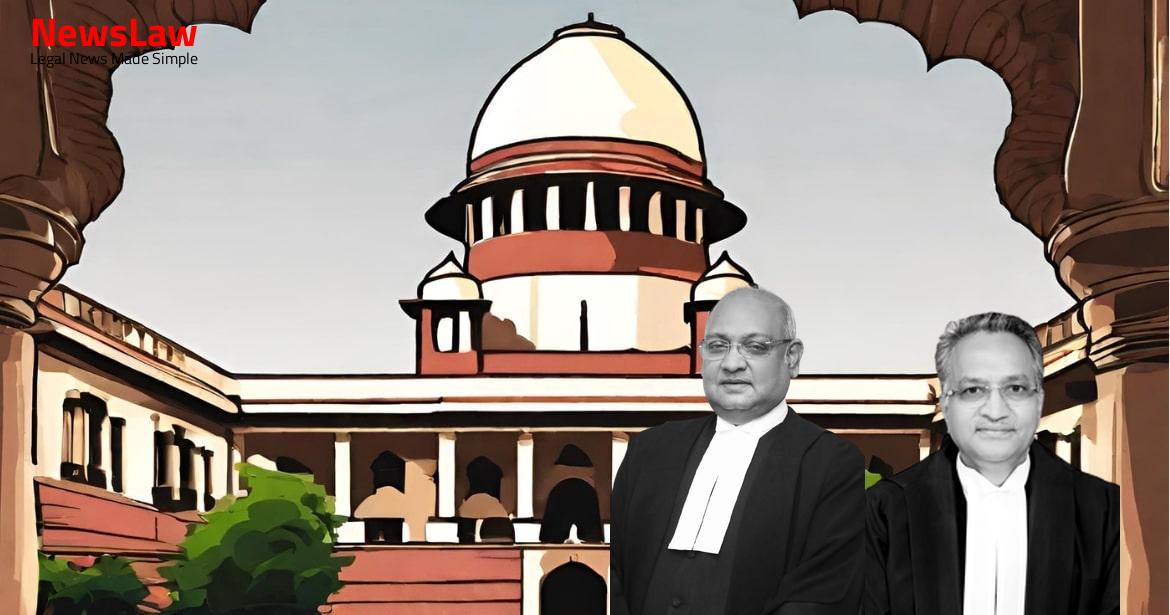Explore the intricate legal analysis conducted by the court regarding the continuity of committees within Municipal Corporations. The case delves into the interpretation of relevant statutory provisions and constitutional requirements governing the functioning of local governance bodies. Unravel the complex legal arguments presented and the court’s meticulous examination of the provisions to determine the validity of the Standing Committee’s operation post the Corporation’s term.
Facts
- The appellant was elected as the Chairman of the Standing Committee of the Corporation on 4th March 2022.
- The appellant represented on 10th March 2022 that the Standing Committee would continue to exist until the constitution of a new Standing Committee after general elections, despite the appointment of an Administrator.
- The High Court dismissed the appellant’s writ petition on 29th March 2022 after considering relevant provisions like Article 243U of the Constitution of India and Section 6A of the Act of 1949.
- The High Court found the appellant’s proposition inconsistent with the applicable provisions of law.
Also Read: Challenging the Maintainability of Public Interest Litigations: A Court’s Legal Analysis
Issue
- Appellant’s suggestions lack substance.
- No provision in Maharashtra Municipal Corporation Act for Standing Committee to continue after Corporation’s tenure ends.
- Courts cannot imply provisions not explicitly stated in statutes.
- Article 243-U(1) of the Constitution and Section 6(i) of Maharashtra Municipal Corporation Act specify the tenure of municipalities and corporations respectively.
Also Read: Dispute over Insurance Claim for Home Loan
Arguments
- Learned counsel for the contesting respondents supported the order passed by the High Court.
- The proviso to sub-section (3) of Section 20 of the Act of 1949 indicates that the members of the Standing Committee retire only upon the election of a new Committee.
- Contradistinguishing provisions of Sections 25 and 29A, it is argued that the Standing Committee is a continuing body even after the term of the Corporation has ended.
- The Standing Committee, as per the provisions discussed, is deemed to continue functioning until the constitution of a new Standing Committee.
- The relevant provisions from the Constitution of India and the Maharashtra Municipal Corporations Act, 1949 are referred to in the arguments.
- The learned counsel for the petitioner argues that the appointment of an Administrator does not automatically extinguish the authority of the Standing Committee under Section 452A of the Maharashtra Municipal Corporation Act.
- The counsel emphasizes that the Administrator is tasked with exercising all powers and duties of the Corporation until the first meeting of the Corporation, without explicitly abolishing the Standing Committee.
- The petitioner challenges the prohibition on the Standing Committee’s functioning post the appointment of an Administrator but does not contest the Administrator’s appointment itself.
- The counsel highlights the provisions of Section 20(3) and Section 452A of the Act to support the stance that the Standing Committee’s existence is not tied to the term of the Corporation.
- Contrasting various sections of the Act, the counsel argues that unlike other committees with limited terms, the Standing Committee, composed of 16 Councillors, has not been prescribed a finite existence.
- Reference is made to the Bombay Municipal Corporation Act, 1888, where the continuity of the Standing Committee is explicitly provided until the appointment of a new committee, despite the retirement of councillors. This is used to support the argument of perpetual existence.
- While acknowledging the absence of a similar provision in the Act of 1949, the counsel argues that a holistic interpretation of relevant sections implies the Standing Committee’s lifespan transcends the Corporation’s term.
- The counsel stresses the unique composition of the Standing Committee, comprising only Councillors, as a reason why specific provisions for term limitations were not deemed necessary.
- An appeal is made to the court to consider the legislative intent and scheme of the Act in determining the Standing Committee’s continued operation beyond the Corporation’s term.
Also Read: Analysis of Non-disclosure in Election Petition
Analysis
- Standing Committee cannot continue to function after the term of the Corporation and Councillors ends.
- The Standing Committee is dissolved along with the completion of the Corporation’s term.
- Proviso to sub-section (3) of Section 20 only applies when existing members of the Standing Committee are to retire after general elections.
- No logic in the argument that the Standing Committee can continue to exist post the Corporation’s term.
- The appointment of the Commissioner as Administrator at the Pune Municipal Corporation is in accordance with the Maharashtra Municipal Corporation Act.
- The duration of the Corporation can only be for 5 years as mandated by Article 243-U(1) of the Constitution.
- Comparison of Sections 452 and 452A of the Act does not support the argument that the Standing Committee can continue after the Corporation’s term.
- Sub-sections (1A) and (1B) of Section 452A deal with the specific contingency where general elections could not be held due to the COVID-19 pandemic.
- Appointing an Administrator does not override the constitutional and statutory provisions regarding the Corporation’s tenure.
- After the end of the Corporation’s term, the term of office of the Councillors also ends, thus invalidating the existence of any Standing Committee.
- The tenure of a Councillor in the Corporation is co-terminus with the duration of the Corporation.
- Half of the members of the Standing Committee retire every year with specific retirement dates.
- In case of general elections, all members of the Standing Committee retire when a new Committee is elected.
- The re-appointment of Councillors who cease to be members of the Standing Committee is allowed.
- The State Government has the power to appoint Government officers to exercise the powers of the Corporation in certain situations.
- The Corporation can be re-constituted by electing new councillors at general ward elections.
- The dissolution of the Corporation can be done by the State Government under specific circumstances.
- Upon dissolution of the Corporation, all powers and duties are transferred to Government Officers appointed by the State Government.
- The Transport Committee is appointed by the Corporation for managing Transport Undertakings.
- Members of the Transport Committee retire every second year with specific retirement dates.
- Wards Committees consist of councillors representing electoral wards, officers, and other nominated members.
- The duration of Wards Committees is co-terminus with the duration of the Corporation.
- The State Government has the power to dissolve the Corporation if it fails to perform its duties or abuses its powers.
- The argument presented does not offer any further assistance to the appellant’s case.
- Any divergent interpretation would be contradictory to the provisions of Article 243U of the Constitution of India and Sections 6 and 6A of the Act of 1949.
- No provision similar to Section 48 of the Act of 1888, or resembling it, is present in the Act of 1949.
Decision
- The appeal has failed and is dismissed.
- Judges Dinesh Maheshwari and J.K. Maheshwari presided over the case.
Case Title: HEMANT NARAYAN RASNE Vs. THE COMMISSIONER AND ADMINISTRATOR OF PUNE MUNICIPAL CORPORATION (2022 INSC 1118)
Case Number: C.A. No.-007685-007685 / 2022



